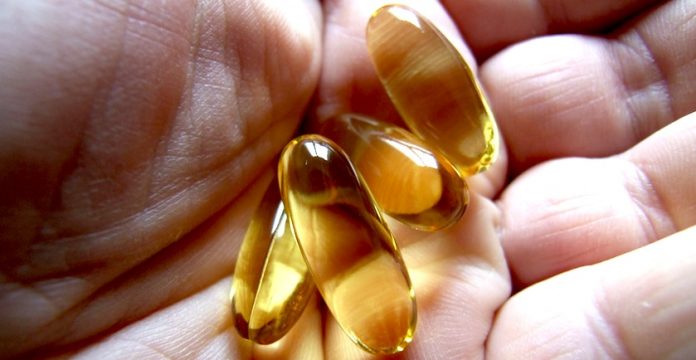
It's good for your joints, skin, vision, brain, and heart. It helps lower bad cholesterol levels and even boosts fertility. It's an anti-ager and an anti-inflammatory. It's found naturally in a variety of delicious foods including walnuts, salmon, tuna, olive oil, and avocados. It's omega fatty acids.
Both omega-3 and omega-6 are essential fatty acids, which means the body cannot make them, and they must be obtained from the diet. For most of human history, these fatty acids were present in the diet in roughly equal amounts. However, modern foods provide an overabundance of omega-6 fatty acids, mostly from refined vegetable oils that are used in fried food as well as snack foods, cookies, and crackers. Omega-3s, conversely, are now relatively rare in American diets. The result is an imbalance of these essential omega fatty acids – promoting inflammation and disease.
Fish oil supplements vary in the amounts and ratios of DHA and EPA they contain. For example, salmon oil naturally contains more DHA than EPA and a supplement derived from algae may only contain DHA. Krill oil contains significant amounts of both EPA and DHA. So, which omega fatty acids should we be reaching for? Based on your current health concerns and diet, you can determine which supplement best suits your needs.
How Do Omega 3 Supplements Compare?
Krill oil – The omega-3 fatty acids in krill oil are stored in a different biochemical form than fish oil. In krill oil, much of the omega fatty acids are stored as phospholipids. These have a simpler digestive process than other forms of fatty acids. Research indicates your body can absorb the omega fatty acids in krill oil more easily than it can from fish oil or plants. Krill oil also contains vitamin E, vitamin A, and vitamin D.
Fish oil – Fish oil is also a great supplement and can be used for people who are in need of high amounts of DHA. North Americans typically have low levels of DHA and high levels of the equally essential but overabundant EPA, from our diets. Approximately 50 percent of the make-up of the human brain is DHA. Adding DHA and EPA to your diet promotes a range of health benefits including benefits to your mental function as well as reducing the risk of depression, ADHD, heart disease, helping your cholesterol levels, weight loss, and much more.
Cod liver oil – Cod liver oil is produced from the livers of fish belonging to the cod family. The oils in these fish tend to build up in the liver and as a result, the oil is also high in vitamins A and D. Vitamin A is vital for the maintenance of healthy skin and the immune system. Vitamin D is important for the body’s absorption and use of calcium, and as a result, helps to maintain healthy bones and teeth. The body naturally manufactures vitamin D when exposed to the sun’s rays. Many people choose to take cod liver oil supplements during the winter months, when natural sunlight and vitamin D may be in short supply. However, cod liver oil often contains a lower concentration of omega-3s when compared to omega-3 fish and krill oil.
Read more about the best food sources of omega-fatty acids
How Much Omega-3 Should I Take?
The government recommendation for fish intake is two portions of fresh fish each week. Any more could potentially be dangerous, due to the toxins and pollutants that can be found in fresh fish. Fish oil supplements can be taken in higher doses because the oils undergo a distillation process, which ensures all toxins and pollutants are filtered out of the oil. Omega-3 fatty acid supplementation is beneficial for both adults and children, although different dosages are recommended*:
- Children between 5 to 14 years – take 500mg each day.
- Adults under the age of 40 years – if you are under the age of 40 years old and fit with no health problems then you may only need around 1000mg each day.
- Adults over the age of 40 years – if you are over 40 or have a higher risk of heart disease or arthritis then you will require a higher dose of 2000mg per day.
- Cod liver oil should not be taken in doses above 2000mg due to its vitamin A content. This is because vitamin A can be toxic when taken in large doses.
*Please check with your healthcare practitioner to determine individual needs and dosage.
Read more about omega-3s and brain health
[Editor's Note: We recommend quality omega-3 supplements from Morphus.]
Image via exoimperator










